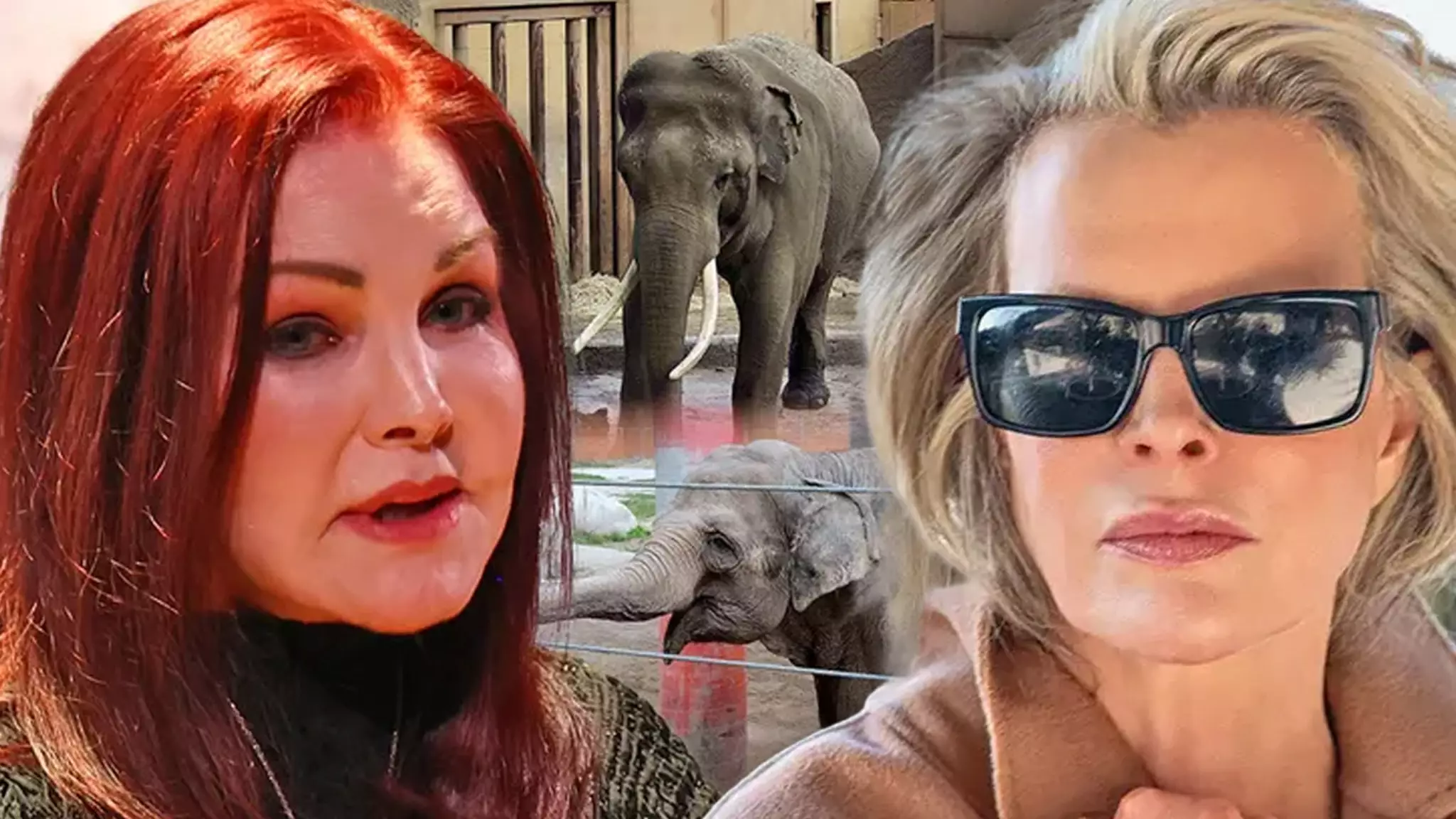In an upsetting turn of events, the Los Angeles Zoo has drawn the ire of animal rights advocates and Hollywood celebrities alike by stealthily transferring its remaining Asian elephants, Tina and Billy, to the Tulsa Zoo. This covert operation originally took place overnight on a Tuesday, with the zoo apparently taking extraordinary measures to avoid protests from a passionate public that sees their captivity as a scandalous injustice. The decision has ignited a firestorm of indignation from high-profile individuals such as Priscilla Presley and Kim Basinger, who have vocally condemned the act as not only cowardly but indicative of an alarming apathy toward these sentient beings.
Consequences of the Transfer
Presley, an enduring advocate for animal rights, expressed her devastation over the “cruel” treatment of Tina and Billy, stating emphatically that they “deserved freedom, space to roam, and the peace of a true sanctuary.” Her words carry weight, given her years of activism with Last Chance for Animals. To Presley, this isn’t merely a moment of personal disappointment but a clarion call for systemic change; she vows to continue fighting for the freedom of both these elephants and for other creatures similarly trapped in captivity. The emotional resonance of her statement underscores a broader discourse on ethical treatment and spaces for wild animals held in confinement, resonating deeply within the realm of animal rights activism.
A Call to Action
Basinger’s condemnation is equally fierce. She points a finger directly at Los Angeles Mayor Karen Bass, suggesting that the decision to transfer the elephants to Tulsa was not only misguided but also a blatant abuse of power. Basinger argues that the available option of relocating Tina and Billy to a proper sanctuary was a “slam dunk,” an irresistibly simple decision that would have not only elevated the spirits of Angelenos but also provided a more fulfilling life for the elephants. Such strong rhetoric highlights the increasing frustration among animal rights activists who feel that government officials prioritize bureaucratic red tape over the emotional and physical well-being of animals.
The Celebrities’ Collective Voice
The vocal opposition is part of a larger movement demanding humane treatment for animals in captivity. Besides Presley and Basinger, a host of celebrities including Cher, Alicia Silverstone, Diane Warren, and Justin Theroux have united to voice their discontent. Their collective efforts consist of a letter addressed to Mayor Bass that implores her to reconsider the transfer and instead prioritize the elephants’ welfare. It’s a striking moment that shows how concerns for animal rights have become increasingly intertwined with social justice narratives, encouraging broader public engagement. The depth of celebrity involvement in this cause serves to amplify the message about moral responsibility towards animals and galvanize public support.
The Zoo’s Justification
In a defensive reply to the mounting outcry, the L.A. Zoo claims that the decision to transfer Tina and Billy followed a “comprehensive evaluation” of all options, ostensibly suggesting that they acted in the elephants’ best interests. This rationale, however, rings hollow amidst the mounting allegations of inhumane treatment and the imminent threat of legal consequences for the decision itself. The move to Tulsa may appear as logistical problem-solving from the zoo’s perspective, but it raises critical ethical questions: what does it mean to evaluate a situation from a humane standpoint? When sanctuary options exist, how can transferring animals into another lock-up be seen as a reasonable choice?
Around the world, the captivity of wild animals is increasingly scrutinized, as public awareness grows about their complex needs. This incident marks a pivotal moment—not merely within the context of Los Angeles—but in the global conversation regarding animal welfare. As champions of this cause converge on the issue, we are left to ponder the potential ramifications of this transfer, not just for Tina and Billy but for countless animals whose voices remain unheard.

